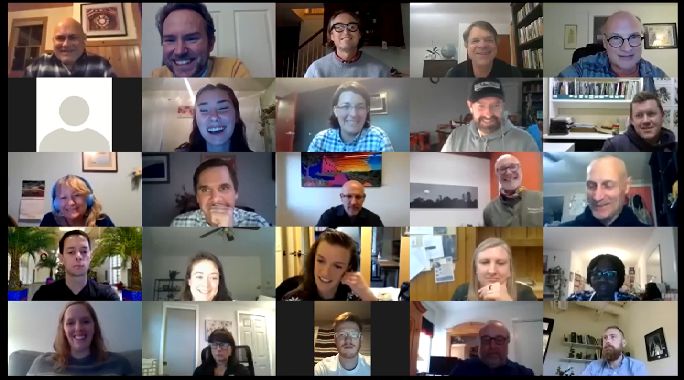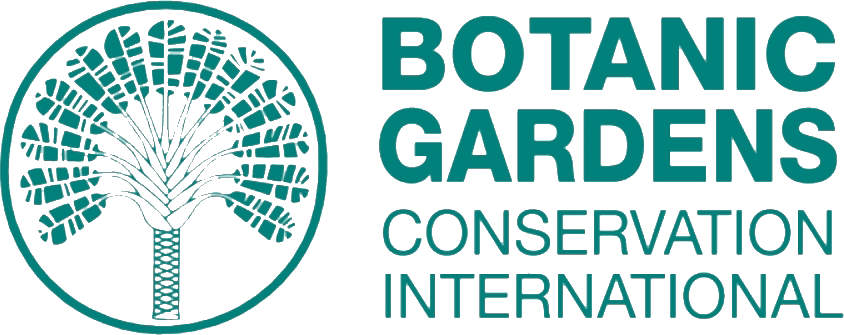About the Climate Toolkit
Read a Welcome Letter from Richard Piacentini, President and CEO of Phipps Conservatory and Botanical Gardens.

The Climate Toolkit is a collaborative opportunity for museums, gardens, zoos, science centers, nature centers, field stations and related institutions who want to learn how to aggressively address climate change within their own organizations and inspire the communities they serve to follow their lead.
Currently, the Climate Toolkit embraces thirty-four goals for addressing climate change within the categories of energy, water, waste, food service, transportation, landscapes and horticulture, investments, engagement and research. The goals were determined through a collaborative process with input from members of the Directors of Large Gardens group. The goals will evolve based on member input over time; we encourage the submission of updates about any climate-related efforts – whether from the existing goals list or beyond – from all participants.
The Climate Toolkit’s goals are designed to align with both the United Nations Sustainable Development Goals (as compared here) and the Project Drawdown Table of Solutions (as compared here).
Public Institutions that have already completed specific goals are encouraged to document their progress by identifying which goals they have completed and which goals they plan to complete in the future. Those who have already completed goals may take a leadership role in helping others by detailing their efforts in resource documents, interviews and presentations.
All members of the initiative have access to the Toolkit blog, newsletters, and quarterly webinar series, all of which will feature stories of the important work that institutions are doing to address various climate goals and provide useful resources.
Already connected with the Climate Toolkit? Let the public know by displaying a Climate Toolkit Partner Badge on your website!
The Climate Toolkit Principles: Share. Mentor. Learn.
SHARE: Every Climate Toolkit participant is encouraged to SHARE their progress with completing their prospective plans to further address climate change.
MENTOR: Organizations who have already completed a goal are encouraged to be responsive to those in need of a MENTOR to help them to achieve similar goals.
LEARN: Partners are encouraged to use The Climate Toolkit to LEARN additional ways they can address climate change from their peers, studies and academic literature to amplify their impact and reduce their environmental impact.
The Climate Toolkit is presented in partnership with American Alliance of Museums, American Public Gardens Association, Association of Science & Technology Centers, Botanic Gardens Conservation International, and the Organization of Biological Field Stations.
What our partners are saying about the Climate Toolkit.
FALLINGWATER
“The Climate Toolkit framework is a valuable asset for Fallingwater, providing actionable strategies to reduce the site’s environmental footprint. By aligning with the Toolkit’s principles—in energy efficiency, water conservation, local foods, sustainable landscape, EV transportation and research, Fallingwater demonstrates environmental stewardship.”
— Lisa Hall, Senior Director of Operations & Sustainability of Fallingwater
DUKE FARMS
“Duke Farms, a Center of the Doris Duke Foundation, has proudly embraced the Climate Toolkit as a powerful resource for collective action on climate change. As a leader in sustainable practices and applied conservation, Duke Farms finds immense value in the Toolkit’s comprehensive framework, which aligns with our strategic pillars of restoring ecosystems, demonstrating equitable climate transition strategies, and engaging leaders for systemic change.
Through the Toolkit, we’ve engaged in conversations and shared strategies that align with several of the 33 Climate Toolkit goals, including achieving energy self-sufficiency via our solar array and battery energy storage system, advancing biodiversity through habitat restoration, and hosting thought leadership events that inspire climate action. The shared platform offers a unique opportunity to compare notes with like-minded organizations, enhancing our ability to innovate and adapt.
We see the Climate Toolkit as not just a resource, but a community—a network that amplifies collective impact and drives measurable progress.”
— Jon Wagar, Deputy Executive Director of Duke Farms
HOLDEN FORESTS & GARDENS
“Holden Forests and Gardens has significantly benefited from its partnership with the Climate Toolkit Initiative, gaining access to valuable resources and guidance that have strengthened our sustainability efforts. Through this collaboration, we have successfully implemented strategies to minimize our environmental footprint and foster climate resilience within our community.”
— Beck Thompson, Education Manager at Holden Arboretum
SCIENCE MUSEUM OF MINNESOTA
“Museums, gardens, zoos, science centers, nature centers, and field stations know that human-caused climate change is urgent but how should we respond to this Hydra-headed crisis? The Phipps Conservatory and Botanical Gardens’ Climate Toolkit is a great resource for all of us who want to learn together about how to aggressively address climate change within our institutions and the communities we serve.”
— Pat Hamilton, Manager of Climate and Sustainability Initiatives
NATURAL HISTORY MUSEUM OF UTAH
“The Climate Toolkit webinar series is a great tool for building the capacity of public institutions to engage in effective climate work. It allows partners to share success stories with colleagues from a broad range of organizations and fosters new connections between them. After I presented the climate communication strategies the Natural History Museum of Utah is testing in its new climate exhibit at a Climate Toolkit webinar, I received emails from several people I hadn’t met before and would not have encountered in my usual natural history museum circles. One of the conversations that followed has laid the ground for a new collaboration.”
— Lisa Thompson, Exhibit Developer, A Climate of Hope
THE MUSEUM OF CONTEMPORARY ART (MOCA) LOS ANGELES
“The Climate Toolkit has meaningfully expanded MOCA’s sustainability network, connecting us with like-minded institutions working to forward museum sustainability, across the sector and beyond contemporary art. The webinars, online resources, and working groups have enriched our internal sustainability efforts and cultivated a sense of inter-institutional collaboration and community.”
— Kelsey Shell, Environmental & Sustainability Strategist, MOCA
SCIENCE WORLD
“Science World has greatly benefited from the Climate Toolkit Initiative’s working sessions. Engaging with institutions facing similar challenges has been invaluable, allowing us to share perspectives, collaborate on solutions, and shift the narrative from problem-focused to action-oriented. The cross-pollination of ideas within the Toolkit’s network reinforces the power of collective knowledge and strengthens our commitment to meaningful climate action.”
— Tom Cummins, Director, Exhibits at Science World





